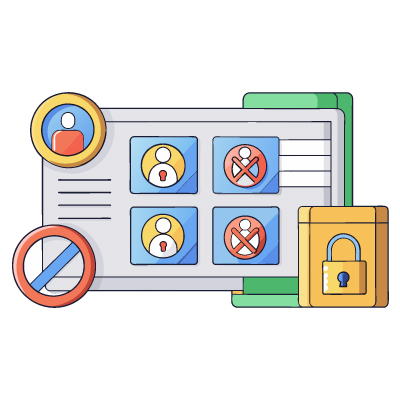Cybersecurity solutions are all well and fine, but your team also plays a significant role in keeping your business safe. You need to acknowledge they are a potential threat and take steps to prepare them for the bevy of threats they’ll face. Today, we want to discuss why your employees are a cybersecurity threat and what you can do to mitigate it.
If you’re a regular reader of this blog, you’ve probably come across articles on blockchain before. This week, we’re shifting gears to explore a new topic: should cryptocurrency, which is enabled by blockchain technology, be subject to taxation by state, federal, and international authorities? Let’s dive into what blockchain is, how it supports cryptocurrency, and the ongoing debate about potential taxation.
Let me ask you this: would you trust every one of your team members with a key to your house? Of course not, right? After all, what if someone lost their copy or had it stolen from them? So, if you wouldn’t trust your entire team with access to your home, why on earth would you trust them with carte blanche access to your entire business and all of its data? That’s just it… you wouldn’t.
Subscriptions are nothing new in the business world, but they can be tough to track and, more importantly, cancel. Now, a new ruling from the Federal Trade Commission makes it easier than ever to cancel a subscription. Today, we want to discuss how this impacts you, your business, and your users.
Relationships in business are just like relationships elsewhere in life: messy and sometimes chaotic, but generally good to foster. This goes for relationships with customers, vendors, and even your employees. Today, we want to look at how you can build better and stronger relationships for your business.
Businesses face numerous challenges, many of which arise internally. Whether your business is dealing with cybersecurity threats, unhappy customers, or unreliable suppliers, leaders must navigate every threat. Among these, internal issues can often be the most disruptive. In this blog, we’ll focus on two critical employee-related challenges that can significantly hinder business operations.
Of all your business’ potential cybersecurity vulnerabilities, one can more easily bring your organization to its knees than any other… but if this vulnerability is addressed correctly, you could instead see considerable benefits. Of course, the vulnerability I’m referring to is your team itself. Human error, in its many forms, can easily leave you vulnerable if you aren’t careful about preparing yourself and the rest of your staff to act with cybersecurity in mind.
How many vendors are you managing? Probably quite a few. Now, think about how much time you spend on each one. What if you could reduce that time to almost nothing? We have some great news for you.
Cyberattacks will not let up anytime soon, so businesses need to be prepared with the knowledge and expertise to combat them. Unfortunately, finding the right folks with the right expertise is hard. According to a report from Kaspersky titled “The Portrait of Modern Information Security Professional,” the world is short about 4 million security professionals, and even the existing professionals make grave errors in their first couple of years. Let’s take a look at some of these insights and see what we can learn from them.
The four-day workweek is gaining traction among small businesses. It promises improved efficiency and increased employee satisfaction… but how can technology enhance this model? How can it help businesses reap the full benefits of a shorter workweek?










